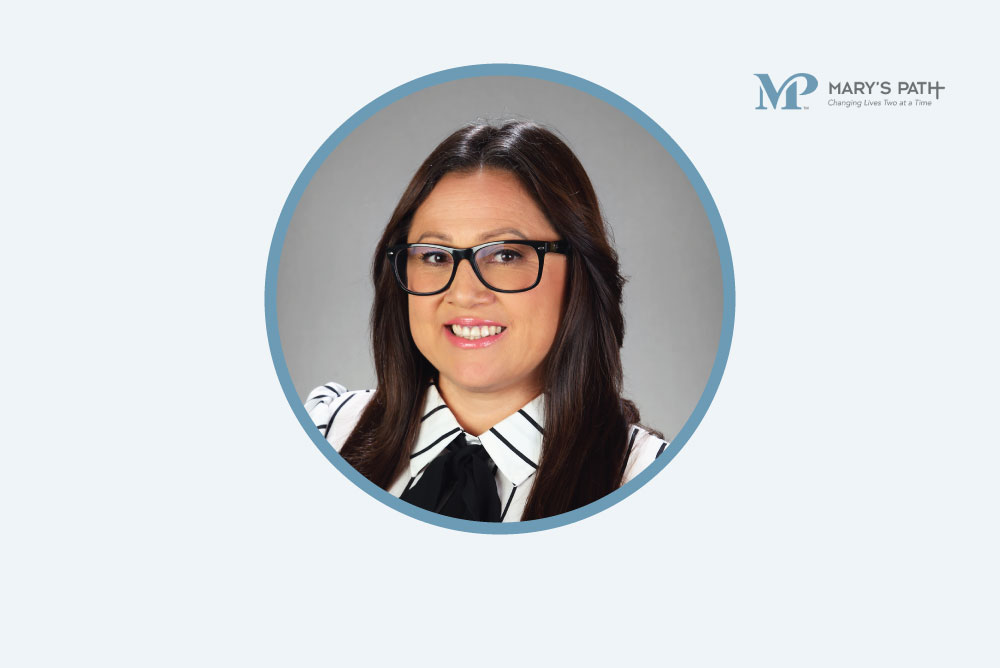Announcement and profile interview of New Head of Service/Lead Clinician Sandra Barela
Sandra, you have roots here in Orange County. And your story is so inspiring. Tell us a little about that.
I got into some trouble as a teenager and was sent to Anaheim to live with my dad when I was 14. I was in high school but got pregnant at 16 and didn’t finish high school. And the father of my children was murdered in gang violence when I was 21. At one point, I was advised to get my GED, but I wanted a high school diploma. So I graduated high school at 21—the same week I gave birth.
I then went to Santa Ana college—I was so excited and proud of myself for being there. I had a college ID! I wrote a paper in one of my classes about wanting to make a difference for teen moms and gangbangers so that people didn’t die needlessly.
I worked at an accounting firm and got demoted because they needed to hire somebody with a bachelor’s degree. And I decided I was never going to lose a job because I didn’t have the education. That was something that was in my control. I wasn’t ready to pay back my student loans, so I stayed in school and went to Cal State Fullerton—I took my kids to class with me.
How did you end up here at Mary’s Path?
I started at Orangewood and got promoted very quickly. I worked in OC for 10 years, and at the end, I was a child abuse investigator [and collaborated with] the Costa Mesa police department. And I found my passion and had a mission without knowing it. During that time, I also interned at Mary’s Path providing therapy for the girls.
But I wasn’t doing anything clinical, so I went to LA County and became a therapist. [This was when] there was another shift in LA toward evidence-based practices. And so, I’m trained in every single evidence-based practice you can think of because I wanted to make sure I knew what I was doing.
When I saw the ad [for this job], I wasn’t looking for work. But I thought how wonderful it would be to come full circle and provide services for pregnant teens.
What’s your biggest challenge?
I have a challenge ahead of me to shift the culture from the old mentality of group homes and make it clinical in the sense that everybody needs to be trained—from the top to the bottom. When I say from the top—it’s like the analogy about cups being full. We have to fill our cups so we can fill our staff’s cups, and our staff’s cups can fill the girls’ cups, and the girls can fill the baby’s cups.
We need to model communication, empathy, and understanding and put into practice the services these youths in foster care deserve and are entitled to have.
What does your job entail?
It’s still a work in progress since it’s a new position. My task is to develop the program.
What motivates you?
The passion. The key is always to be passionate. My leadership style is pulling on that string of passion to help performances. We’re in this field for a reason.
And I’m really passionate about making generational change for the babies. We’re planting seeds for these moms. Age 0 to 5 is such a critical stage for babies to build attachments. Based on my background, it takes three generations to make that complete shift from generational trauma.
These girls come into the system. They were abused and neglected, and that comes from who knows how many generations before. And so we need to provide that psychoeducation and help [them form] attachments with their babies, so the [cycle] doesn’t continue. We know if the attachment in babies ages 0-5 is severed or doesn’t exist, they [can develop] personality disorders and severe mental health issues.
What do you do for fun?
I bicycle. Before starting this job, (and I want to go back to doing it), I rode about 20 miles a day. I bike all over OC. When I got the phone call that I got this job, I was on a bike ride in San Francisco.
Who are your role models?
Supervisors can make or break you. I had one supervisor who was phenomenal. And I said I’m going to be that type of supervisor. The second role model would be my past director, who taught me how to be a supervisor. It’s a very tough shift to go from clinician to manager. I have to make sure the policies and procedures are in compliance. But, at the same time, you can’t miss the human skills that enable you to fill the cups of our staff so that they can fill the cups of our parents and so on.


